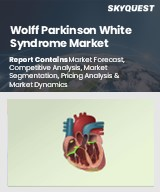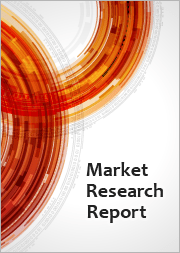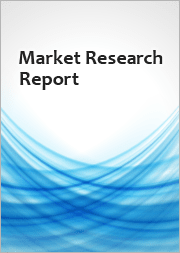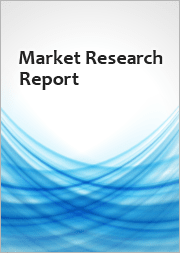
|
시장보고서
상품코드
1792454
허혈성 심질환(IHD) 치료제 시장 보고서(2025-2033년) : 질환 클래스별, 약제 클래스별, 지역별Ischemic Heart Disease Drugs Market Report by Disease Class, Drug Class, and Region 2025-2033 |
||||||
세계의 허혈성 심질환(IHD) 치료제 시장 규모는 2024년 66억 달러에 달했습니다. 향후 IMARC Group은 시장 규모가 2033년에는 93억 달러에 이르고, 2025-2033년 성장률(CAGR)은 3.73%가 될 것으로 예측했습니다.
허혈성 심질환은 관상동맥성 심장 질환으로도 알려져 있으며 산소와 혈액 공급을 차단하여 심근에 손상을 주는 질병입니다. 허혈성 심질환은 혈관 분자 수준의 변화와 죽종에 의한 관상 동맥의 갑작스러운 폐쇄와 협착을 수반합니다. 이 질병은 종종 만성 흉통과 심한 불쾌감을 특징으로 하며 방치하면 생명을 위협할 수 있습니다. IHD 치료제에는 사례의 강도에 따라 다양한 약물이 사용됩니다. 예를 들어, 콜레스테롤 개선제로는 혈액 중의 콜레스테롤 수치를 낮추면 혈액이 응고하는 경향을 억제하기 위해 아스피린이 배합되어 심박수를 낮추고 혈압을 낮추기 위해 β차단제가 이용됩니다. IHD 치료제에는 칼슘 채널 차단제와 라놀라진도 포함되어 베타 차단제의 효과를 높이고 관상 동맥 질환의 추가 진행을 방지합니다.
IHD 치료제에 대한 항협심증 약물의 광범위한 이용과 함께, 인터벤션 치료제에 대한 대중의 선호도 증가는 시장 성장을 가속하는 주요 요인 중 하나입니다. IHD 치료제는 혈관성형술, 죽종절제술, 풍선 혈관성형술 등 심장병 치료제 절차에 통합되어 건강한 회복을 보장하고 향후 재발을 예방합니다. 또한, 이러한 약물을 정기적으로 투여하는 이점에 대한 소비자 의식 증가도 수요에 큰 영향을 미칩니다. 과도한 음주와 흡연, 운동 부족 등의 생활 습관도 심혈관 질환의 유병률 상승으로 이어지고 있습니다. 게다가 세계적으로 심장질환을 앓고 있는 노인이 증가하고 있는 것도 IHD 치료제 수요를 끌어올리고 있습니다.
이 보고서에서 다루는 주요 질문
- 세계의 허혈성 심질환 치료제 시장의 현재까지의 추이와 향후의 추이는?
- COVID-19가 세계의 허혈성 심질환 치료제 시장에 미치는 영향은?
- 질환 클래스별 시장 내역은?
- 약제 클래스별 시장 내역은?
- 세계의 허혈성 심질환 치료제 시장의 주요 지역 시장은?
- 세계의 허혈성 심질환 치료제 산업 밸류체인의 다양한 단계는?
- 세계의 허혈성 심질환 치료제 산업의 주요 촉진요인과 과제는?
- 세계의 허혈성 심질환 치료제 산업의 구조와 주요 진출기업은?
- 세계의 허혈성 심질환 치료제 산업의 경쟁 정도는?
목차
제1장 서문
제2장 조사 범위와 조사 방법
- 조사의 목적
- 이해관계자
- 데이터 소스
- 1차 정보
- 2차 정보
- 시장 추정
- 상향식 접근
- 하향식 접근
- 조사 방법
제3장 주요 요약
제4장 소개
- 개요
- 주요 산업 동향
제5장 세계의 허혈성 심질환 치료제 시장
- 시장 개요
- 시장 실적
- COVID-19의 영향
- 시장 예측
제6장 시장 분석 : 질환 클래스별
- 협심증
- 심근경색
제7장 시장 분석 : 약제 클래스별
- 항이상지질혈증약
- 칼슘 채널 차단제
- 베타 차단제
- ACE 억제제
- ARB
- 혈관 확대제
- 항혈전제
제8장 시장 분석 : 지역별
- 북미
- 유럽
- 아시아태평양
- 중동 및 아프리카
- 라틴아메리카
제9장 SWOT 분석
- 개요
- 강점
- 약점
- 기회
- 위협
제10장 밸류체인 분석
제11장 Porter's Five Forces 분석
- 개요
- 구매자의 협상력
- 공급기업의 협상력
- 경쟁도
- 신규 참가업체의 위협
- 대체품의 위협
제12장 가격 분석
제13장 경쟁 구도
- 시장 구조
- 주요 기업
- 주요 기업 프로파일
- Bayer AG
- Eli Lilly and Company
- Novartis International AG
- Pfizer, Inc.
- Sanofi SA
- Actelion Pharmaceuticals Ltd.
- Baxter International Inc.
- Boehringer Ingelheim International GmbH
- Bristol-Myers Squibb Company
- Amgen Inc.
- F. Hoffmann-La Roche AG
- GlaxoSmithKline Plc
- Merck & Co.
- Eisai Co., Ltd.
The global ischemic heart disease (IHD) drugs market size reached USD 6.6 Billion in 2024. Looking forward, IMARC Group expects the market to reach USD 9.3 Billion by 2033, exhibiting a growth rate (CAGR) of 3.73% during 2025-2033.
Ischemic heart disease (IHD), also known as coronary heart disease, is a condition that damages the heart muscle by interrupting the oxygen and blood supply. It involves molecular changes in the blood vessels or sudden closure and narrowing of coronary arteries by atheroma. The disease is often characterized by chronic chest pain and severe discomfort and can be fatal if left untreated. Various drugs are used to treat IHD depending on the intensity of the case. For instance, if cholesterol-modifying medication decreases cholesterol levels in the blood, then aspirin is prescribed to reduce clotting tendencies of the blood, and beta blockers are utilized to lower the heart rate and decrease blood pressure. IHD drugs also include calcium channel blockers and ranolazine that improve the efficiency of beta blockers and prevent further progression of coronary disease.
The growing inclination of the masses towards interventional medical procedures along with extensive utilization of anti-anginal medications for the treatment of IHD is one of the key factors driving the market growth. IHD drugs are being incorporated in cardiological treatment procedures such as angioplasty, atherectomy and balloon angioplasty to ensure a healthy recovery and prevent relapse in the future. Additionally, rising consumer awareness regarding the benefits of scheduled administration of these drugs is also creating a significant impact on their demand. Lifestyle habits such as excessive alcohol consumption and smoking along with physical inactiveness are also leading to an increasing prevalence of cardiovascular diseases. Furthermore, the expanding population of geriatrics around the globe, who are severely prone to heart ailments, is also boosting the demand for IHD drugs.
Key Market Segmentation:
Breakup by Disease Class:
- Angina Pectoris
- Myocardial Infarction
Breakup by Drug Class:
- Anti-Dyslipidemic Drugs
- Calcium Channel Blockers
- Beta-Blockers
- ACE Inhibitors
- ARBs
- Vasodilators
- Antithrombotic Agents
Breakup by Region:
- North America
- Europe
- Asia Pacific
- Middle East and Africa
- Latin America
Competitive Landscape:
The competitive landscape of the industry has also been examined with some of the key players being Bayer AG, Eli Lilly and Company, Novartis International AG, Pfizer, Inc., Sanofi S.A., Actelion Pharmaceuticals Ltd., Baxter International Inc., Boehringer Ingelheim International GmbH, Bristol-Myers Squibb Company, Amgen Inc., F. Hoffmann-La Roche AG, GlaxoSmithKline Plc, Merck & Co., and Eisai Co., Ltd.
Key Questions Answered in This Report:
- How has the global ischemic heart disease (IHD) drugs market performed so far and how will it perform in the coming years?
- What has been the impact of COVID-19 on the global ischemic heart disease (IHD) drugs market?
- What is the breakup of the market based on the disease class?
- What is the breakup of the market based on the drug class?
- What are the key regional markets in the global ischemic heart disease (IHD) drugs industry?
- What are the various stages in the value chain of the global ischemic heart disease (IHD) drugs industry?
- What are the key driving factors and challenges in the global ischemic heart disease (IHD) drugs industry?
- What is the structure of the global ischemic heart disease (IHD) drugs industry and who are the key players?
- What is the degree of competition in the global ischemic heart disease (IHD) drugs industry?
Table of Contents
1 Preface
2 Scope and Methodology
- 2.1 Objectives of the Study
- 2.2 Stakeholders
- 2.3 Data Sources
- 2.3.1 Primary Sources
- 2.3.2 Secondary Sources
- 2.4 Market Estimation
- 2.4.1 Bottom-Up Approach
- 2.4.2 Top-Down Approach
- 2.5 Forecasting Methodology
3 Executive Summary
4 Introduction
- 4.1 Overview
- 4.2 Key Industry Trends
5 Global Ischemic Heart Disease (IHD) Drugs Market
- 5.1 Market Overview
- 5.2 Market Performance
- 5.3 Impact of COVID-19
- 5.4 Market Forecast
6 Market Breakup by Disease Class
- 6.1 Angina Pectoris
- 6.1.1 Market Trends
- 6.1.2 Market Forecast
- 6.2 Myocardial Infarction
- 6.2.1 Market Trends
- 6.2.2 Market Forecast
7 Market Breakup by Drug Class
- 7.1 Anti-Dyslipidemic Drugs
- 7.1.1 Market Trends
- 7.1.2 Market Forecast
- 7.2 Calcium Channel Blockers
- 7.2.1 Market Trends
- 7.2.2 Market Forecast
- 7.3 Beta-Blockers
- 7.3.1 Market Trends
- 7.3.2 Market Forecast
- 7.4 ACE Inhibitors
- 7.4.1 Market Trends
- 7.4.2 Market Forecast
- 7.5 ARBs
- 7.5.1 Market Trends
- 7.5.2 Market Forecast
- 7.6 Vasodilators
- 7.6.1 Market Trends
- 7.6.2 Market Forecast
- 7.7 Antithrombotic Agents
- 7.7.1 Market Trends
- 7.7.2 Market Forecast
8 Market Breakup by Region
- 8.1 North America
- 8.1.1 Market Trends
- 8.1.2 Market Forecast
- 8.2 Europe
- 8.2.1 Market Trends
- 8.2.2 Market Forecast
- 8.3 Asia Pacific
- 8.3.1 Market Trends
- 8.3.2 Market Forecast
- 8.4 Middle East and Africa
- 8.4.1 Market Trends
- 8.4.2 Market Forecast
- 8.5 Latin America
- 8.5.1 Market Trends
- 8.5.2 Market Forecast
9 SWOT Analysis
- 9.1 Overview
- 9.2 Strengths
- 9.3 Weaknesses
- 9.4 Opportunities
- 9.5 Threats
10 Value Chain Analysis
11 Porters Five Forces Analysis
- 11.1 Overview
- 11.2 Bargaining Power of Buyers
- 11.3 Bargaining Power of Suppliers
- 11.4 Degree of Competition
- 11.5 Threat of New Entrants
- 11.6 Threat of Substitutes
12 Price Analysis
13 Competitive Landscape
- 13.1 Market Structure
- 13.2 Key Players
- 13.3 Profiles of Key Players
- 13.3.1 Bayer AG
- 13.3.2 Eli Lilly and Company
- 13.3.3 Novartis International AG
- 13.3.4 Pfizer, Inc.
- 13.3.5 Sanofi S.A.
- 13.3.6 Actelion Pharmaceuticals Ltd.
- 13.3.7 Baxter International Inc.
- 13.3.8 Boehringer Ingelheim International GmbH
- 13.3.9 Bristol-Myers Squibb Company
- 13.3.10 Amgen Inc.
- 13.3.11 F. Hoffmann-La Roche AG
- 13.3.12 GlaxoSmithKline Plc
- 13.3.13 Merck & Co.
- 13.3.14 Eisai Co., Ltd.






